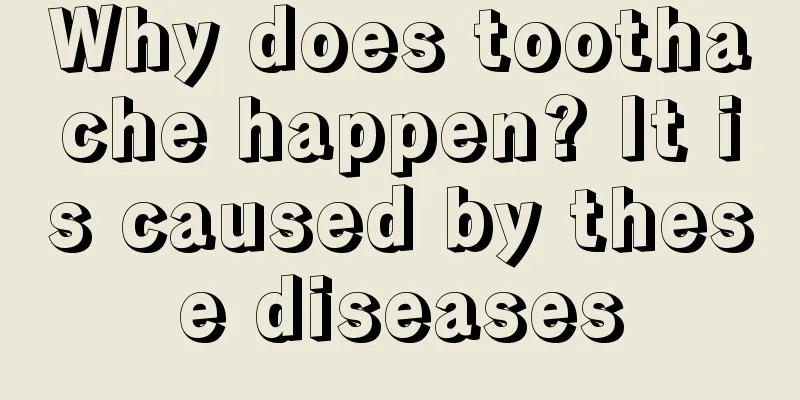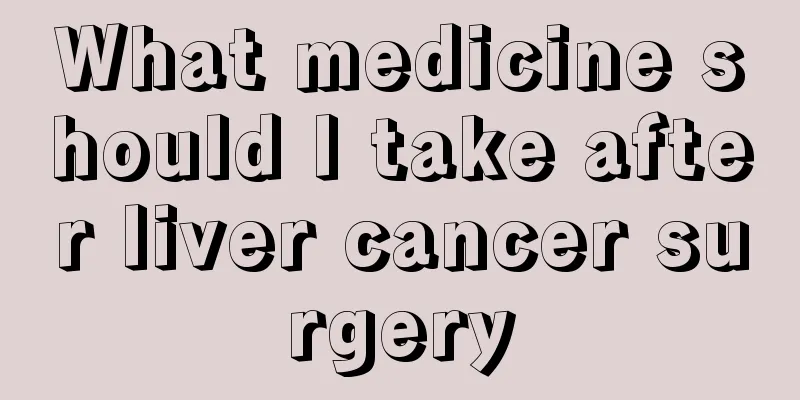Why does toothache happen? It is caused by these diseases

|
Toothache is not a disease, but it is really painful when it happens. I believe many people have had this experience. In fact, toothache is not caused by any problems with the teeth, but by certain oral diseases, such as caries, pulpitis, apical periodontitis, dental trauma, pericoronitis of wisdom teeth, etc. 1. Dental caries: Initial dental caries usually have no symptoms. When the dental cavities become larger and deeper, toothache may occur when eating. The pain will be aggravated when eating sweets or overcold or overheated foods. At this time, you can first use acid-proof and analgesic toothpaste, brush your teeth with warm water, and use folk remedies to relieve pain when necessary, but the most effective treatment method should be to fill the cavities. 2. Pulpitis: It is mostly caused by pulp infection due to deep caries without filling, or caused by chemical drugs or temperature stimulation. The pain is spontaneous and paroxysmal, and may be accompanied by cold, hot stimulation pain and percussion pain. For emergency treatment of this type of toothache, you can take 300 mg of ibuprofen orally, twice a day, to relieve the pain, or use folk remedies to relieve the pain. The radical cure is to use a dental anvil to open the pulp cavity for endodontic treatment under local anesthesia. 3. Apical periodontitis: It usually spreads from pulpitis to the root canal orifice, causing inflammation of the tissues around the apex. Symptoms include persistent tooth pain. The affected tooth has a sense of elongation, and is obviously painful to touch and tenderness, and cannot bite food. At this time, you can take anti-inflammatory and analgesic drugs, such as 0.5 grams of vancomycin No. 4, 3 times a day; 0.4 grams of metronidazole, 3 times a day, 25 mg of indomethacin, 3 times a day; and eat soft food. You can also use folk remedies for emergency pain relief. Root canal treatment should be performed after the inflammation subsides. 4. Dental trauma: such as accidental falls, bumps, or sand biting while eating, which may cause tooth fracture or cracking, causing tooth pain. You can take anti-inflammatory and analgesic drugs first, or you can use folk remedies to relieve pain. Those who have the conditions should go to the dental department for treatment. 5. Pericoronitis of wisdom teeth: Difficulty in erupting wisdom teeth (impacted), coupled with poor oral hygiene, causes inflammation, swelling and pain in the tissues around the crown. You can rinse your mouth with gargles such as Koutai or Koushu, take anti-inflammatory and analgesic drugs, or use folk remedies to relieve pain. Remove the impacted tooth after the inflammation has subsided. In addition, influenza, trigeminal neuralgia, jaw cysts or tumors, high blood pressure, and heart disease can sometimes cause toothache. Therefore, for those who complain of toothache but have no tooth lesions, do not blindly abuse painkillers. Instead, go to the hospital for specialist diagnosis and treatment in time. |
<<: Scraping and cupping make your body healthier
>>: Can patients with frozen shoulder exercise?
Recommend
Why do I feel nauseous and want to vomit after drinking milk
Milk is a very common food in our daily life. Mil...
What are the dangers of face-slimming masks
Face-slimming masks have the effect of slimming t...
What's wrong with low heart rate
In life, many people have a low heart rate. There...
Is frequent recurrence of cervical spondylosis due to inflammation?
Cervical spondylosis is a very common disease. Th...
Essential oils that help you sleep
There are many things that can help people fall a...
What to do if moths appear at home
Moths are common insects in daily life. They like...
What are the precautions for urine examination?
Urine test is one of the three major routine exam...
Can coix seed be eaten with walnuts?
Nowadays people often like to eat foods rich in c...
How to do hair spa, make your hair smooth and silky
Nowadays, women are more and more fond of beauty....
How long does it take for shingles blisters to disappear
Shingles is a skin disease that is very common in...
There are many moles on the body
In our lives, many people have moles on their bod...
What to do with kitchen grease? Recommend these cleaning tips
Nowadays, many people's kitchens have a thick...
Can Hepatitis C be cured?
Hepatitis C is a common type of hepatitis. There ...
Can I still get pregnant with stage 2 prostate cancer?
Prostate cancer is a common disease among men. Th...
What are the treatments for advanced lung cancer? There are several treatments
Lung cancer in the late stage needs active treatm...









